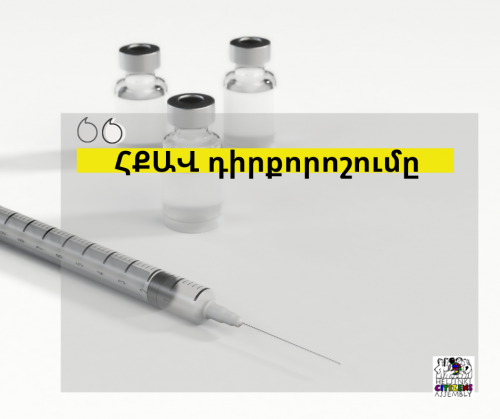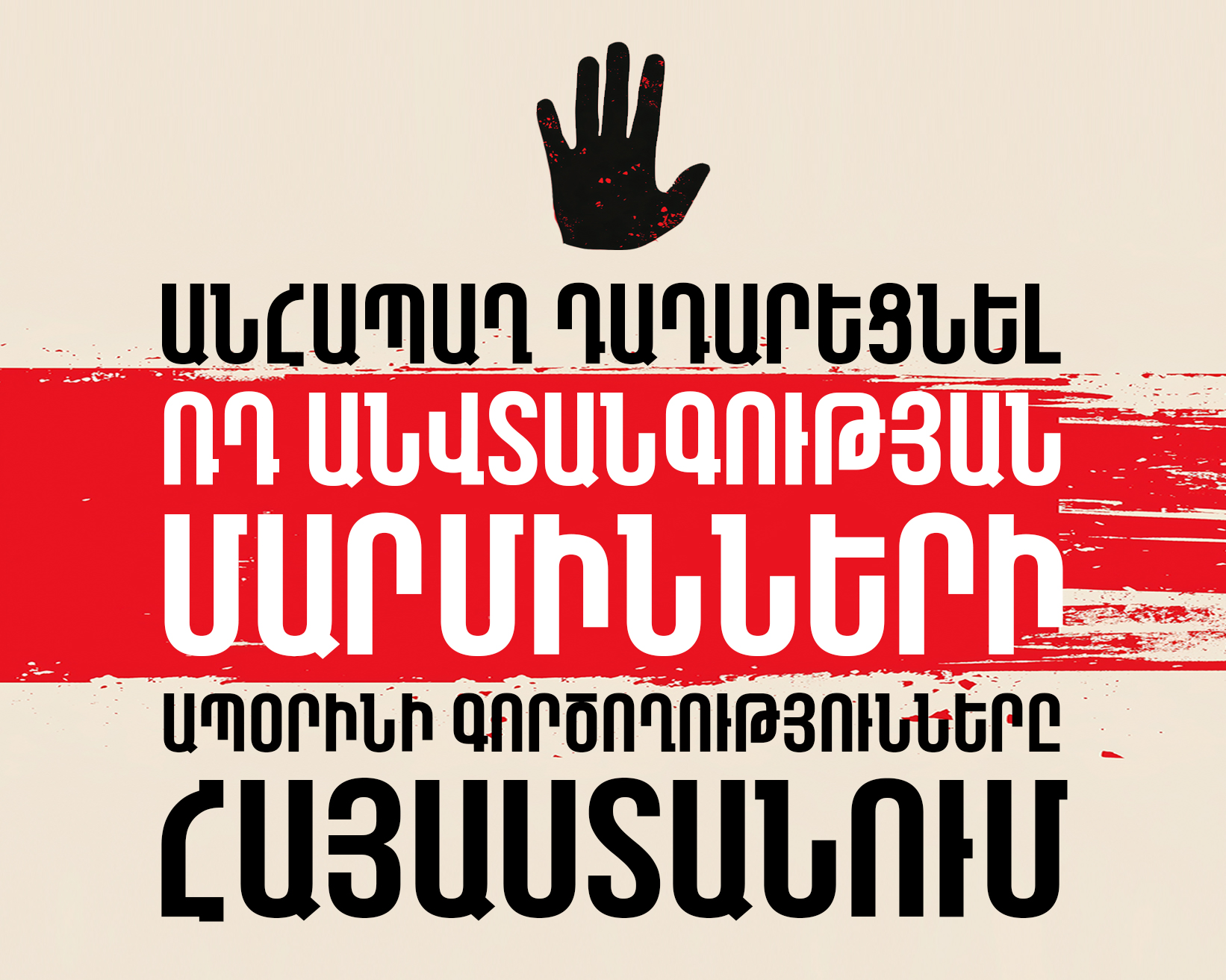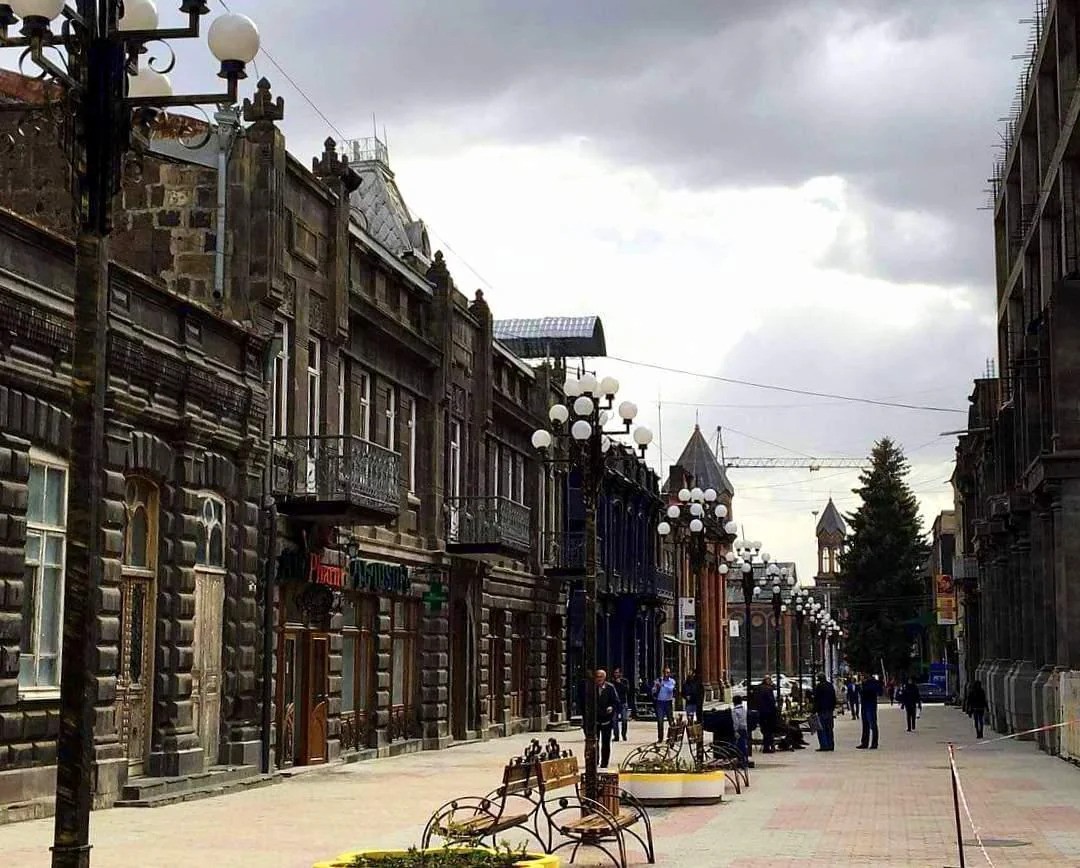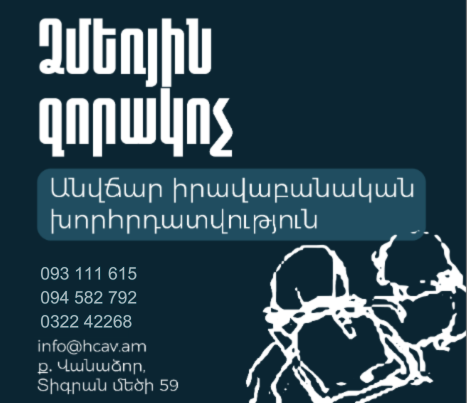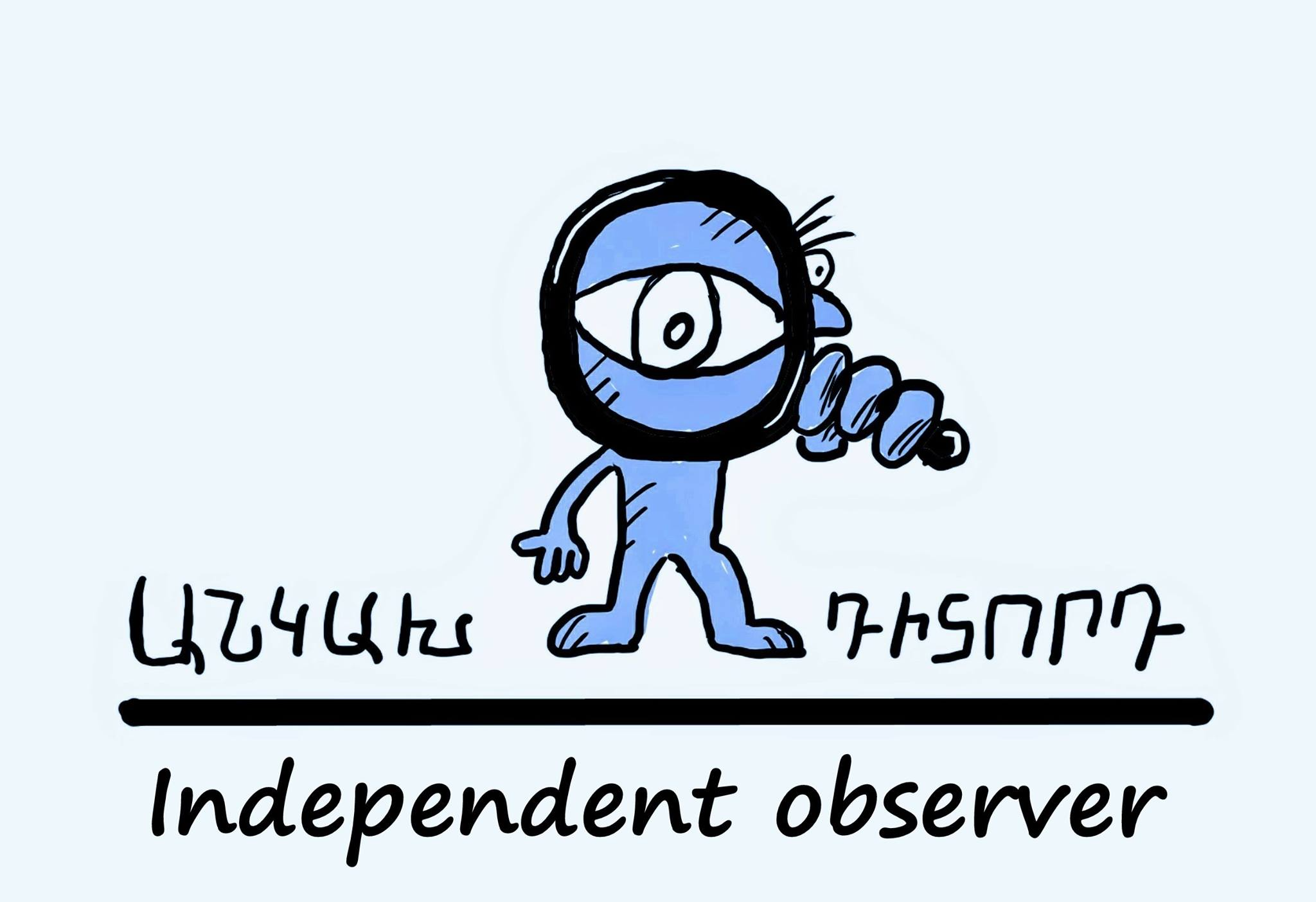




The state’s right of recourse, i.e. subrogation, in the compensation for the damage caused as a result of torture is not implemented in regard to individuals who exercised torture
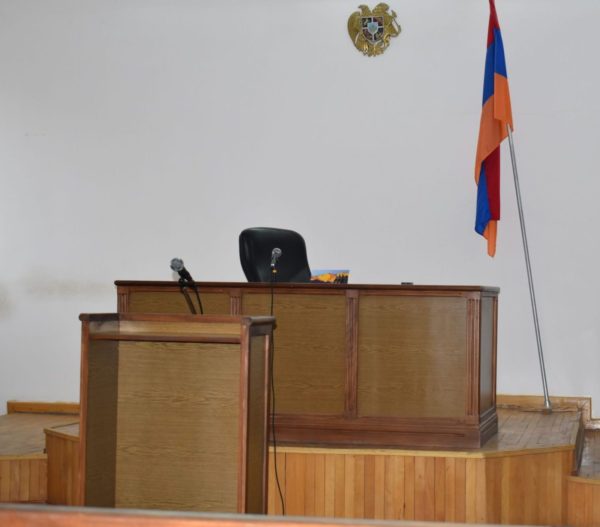
COVID-19 | Activities | Legal Support | Legal Support | Right to Freedom from Torture | Publications | Human Rights in the State of Emergency | News | State Institutions | Civilian Oversight and Monitoring
On 16 December 2016, the National Assembly adopted RA Law “On making addenda to the RA Civil Code”. It entered into force in January 2017. According to Article 3 of the Law, addenda were made to Chapter 60 of the RA Civil Code (hereinafter also referred to as Code), which define the procedure and conditions of compensation to torture survivors. Part 7 of Article 1087.3 of the Code contains quite noteworthy regulations: the state has the right of recourse in the amount of compensation paid for the damage caused as a result of torture by an official or another person with the authority to appear on behalf of a state body or torture exercised as induced, ordered by them or with their knowledge.
On 2 October 2019, HCA Vanadzor sent a note to the RA Minister of Finance Atom Janjughazyan in order to clarify the practical application of the compensation procedure. The Organization particularly wanted to find out how many claims were made against the state in 2017, 2018 and 2019, how many of them were satisfied in a judicial procedure and in how many cases compensation was given from the state budget. Besides, the following questions were also asked: how many persons applied in extrajudicial procedure in the same time period and with the same claim and how many were satisfied; when compensating those persons from the state budget, in how many cases were persons who exercised torture presented with a subrogation claim in the amount of compensation; how many torture survivors were compensated for medical aid and service?
On 15 October 2019, the RA Ministry of Finances informed HCA Vanadzor in a laconic response, “In 2017-2019, no claim was filed against the RA Ministry of Finance by torture survivors in judicial or extrajudicial procedure”.
Not receiving a response to the point, on 5 March 2020 HCA Vanadzor again sent a note to the RA Minister of Finance to inform that after the provision on compensation for torture survivors entered into force in the above-mentioned law, the amout of money subject to compensation in the torture cases recorded in 4 judgments made by the European Court of Human Rights was AMD equivalent to EUR 33,600.
By the new letter HCA Vanadzor expected from the Ministry of Finance information whether the state has compensated the amount of money subject to be paid to the applicants as determined in the European Court of Human Rights judgments regarding the Republic of Armenia. The Organization also tried to get information about the following: in cases when the compensation was paid from the state budget, had the state made a subrogation claim against the person who directly exercised torture or the person who ordered to exercise torture?
HCA Vanadzor also asked the Minister to give details as to in which of the four judgments and against whom a recourse claim was made, and otherwise, the Organization asked to clarify why until now the state did not exercise its right regarding compensation as established by the Code.
On 18 March 2020, RA Ministry of Finance Secretary General Vazgen Harutyunyan responded to HCA Vanadzor. In particular, he informed about the amount of compensation in all the four cases, namely, “Matevosyan v. Armenia”, “Hovhannisyan v. Armenia”, “Mushegh Saghatelyan v. Armenia” and “Gasparin v. Armenia”, AMD equivalent to EUR 6000, EUR 3000, EUR 20600 and EUR 4000 respectively. It was also mentioned in the letter that according to the relevant decision of the Government, those means were allocated to the RA Ministry of Justice. However, in regard to the recourse claim, which is considered important and crucial in the procedure of compensation established by law, the Secretary General of the Ministry of Finance only made a reference to the RA Ministry of Justice, noticing that information on such a claim was not provided, that is why they did not take any step.
HCA Vanadzor records that having the relevant legislative means, the state, nevertheless, does not use it as such. In all the four cases, the state did not perform its obligation to claim to charge back the money provided by the state budget from the person who exercised torture or the person who induced to exercise torture.
Part 7 of Article 1087.3 of the Code has a crucial meaning in that as a result of exercising the right of recourse, officials or persons with the authority to appear on behalf of a state body will compensate for the damage caused by torture which was made by them, as induced or ordered by them or with their knowledge.
At the same time, it should be noted that Article 162.1 of the RA Civil Code reserved the right to claim for compensation for non-pecuniary damage for cases when the body of criminal prosecution or the court has confirmed that as a result of a decision, action or inaction of a state or local self-government body or their official, the following fundamental rights guaranteed by the RA Constitution and Convention for the Protection of Human Rights and Fundamental Freedoms were violated:
1) the right to life,
2) the right to be free from torture, inhuman or degrading treatment or punishment,
3) the right to liberty and security,
4) the right to fair trial,
5) the right to respect for private and family life, the right to inviolability of home,
6) the right to freedom of thought, conscience and religion, the right to freedom of opinion and expression,
7) the right to freedom of assembly and association,
8) the right to effective remedy,
9) the right to property.
Moreover, part 3 of the same Article clearly enshrines that if the convict is acquitted in the conditions envisaged by Article 3 of Protocol No.7 to the Convention for the Protection of Human Rights and Fundamental Freedoms, he has the right to claim for compensation for the non-pecuniary damage caused to him in a judicial procedure (in the meaning of this Code, it is a compensation for wrongful conviction).
Part 4 of the same Article provides that the damage caused to honor, dignity or business reputation shall be compensated under Article 1087.1, and non-pecuniary damage caused as a result of violation of fundamental rights and wrongful conviction shall be compensated in a manner and according to the conditions provided for by Article 1087.2.
It should be noted that Article 1087.2 of the Code provides for the procedure and conditions of compensating for non-pecuniary damage caused as a result of violation of fundamental rights and wrongful conviction and envisages that the way, ground and amount for compensation for non-pecuniary damage caused as a result of violation of fundamental rights and wrongful conviction are decided in accordance with Article 162.1 of this Code.
The mentioned Articles also enshrine that non-pecuniary damage is subject to compensation at the expense of state budget irrespective of the property damage subject to compensation and irrespective of the existence of the official’s guilt when causing the damage.
Nevertheless, it should be recorded that the RA Civil Code envisages the right to compensation for pecuniary damage in case a decision, action or inaction of a state or local self-government body or their official caused violation of constitutional or convention rights. Therefore, it should be noted that besides the violation of constitutional and convention right to be free from torture, the Code also envisages other fundamental rights, in case of the violation of which, the right to compensation for non-pecuniary damage appears. And one of its conditions continues to be the decision, action or inaction of a state or local self-government body or its official, which caused violation of a fundamental right, and the compensation for a pecuniary damage shall be made at the expense of state budget.
The aforementioned allows us to record that by envisaging the procedure for compensating for non-pecuniary damage, the main aim of the legislator is to prevent the violation of a person’s constitutional and convention rights by a state or local self-government body or its official, an effective means of which is the establishment of the institute of regress claims and envisaging, in this context, not only the right to compensation for pecuniary damage in case of violation of a person’s constitutional and convention rights by officials, but also presentation of regress claims by the state to the state or local self-government body, official, whose decision, action or inaction caused the damage.
Besides the aforementioned, it should be noted that the establishment of the institute of regress claims is also connected with practice. As long as the state does not take relevant steps to apply and further develop that means, constitutional and convention rights continue to be violated as a result of decisions, actions or inactions by state bodies, local self-government bodies and their officials.


